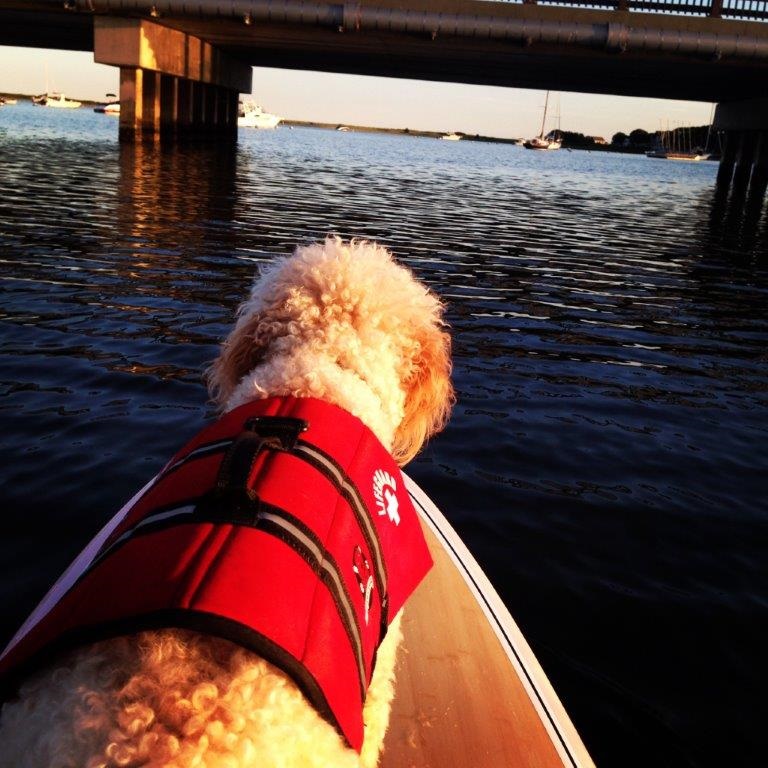With so many miles of gorgeous coastline, New England is an excellent place to spend the summer and warmer months on the water. With the “unofficial” start to summer having just kicked off and many summer activities and adventures ahead, lots people will be enjoying fun times on the water. Also, National Fishing and Boating Week is taking place June 3-11th. The event highlights the importance of recreational boating and fishing. It’s a perfect time to celebrate by reviewing some important tips on boating safety and how to avoid injuries.
Boating can be a blast, but it can also become very dangerous when not done correctly. Boating accidents can be very tragic and happen more than many people realize. According to The American Boating Association, in 2015, the Coast Guard counted 4,158 accidents that involved 626 deaths, 2,613 injuries and approximately $42 million dollars of damage to property as a result of recreational boating accidents. Almost all the causes of boating accidents are based on negligence.
The top five contributing factors to boating injuries and deaths in 2015 were:
- Use of alcohol.
- Operator inattention.
- Inexperienced boat operator.
- Excessive speed.
- Improper lookout.
Massachusetts is lucky enough to have a beautiful, expansive coastline and lots of accessibility to the water. Unfortunately, accidents do occur. The Coast Guard reports that in 2015 in Massachusetts, there were 89 reported boating accidents. In 2015, five people were killed and another 37 were reported to have been injured.
See here for more eye opening statistics.
Boat operators and passengers can actively do their part to try to prevent injuries and fatalities that can happen as a result of boating accidents. Boat operators have a duty to safely and securely operate their boats. If an operator fails to comply with this duty and acts negligently, they are liable for the damages to any injured person or to the surviving family members of those who were injured or killed.
The laws protect victims in personal injury accidents that are caused by a negligent lack of due care. This means, boat operators owe a duty to those they injure on their property (boat). This liability is also applicable to passengers who participate in reckless or dangerous behavior and obstruct the safe operation of a boat.
If you have been a victim of a boating accident, please contact the skilled personal injury attorneys and staff at Schulze Law. We are equipped to handle the individuality of each and every personal injury case we represent and offer compassionate, clear counseling and assistance. We are there for victims and their families when they need support the most. Accidents and injuries suffered due to a boating accident can be serious and complex. Our team can help you.
If you are planning any boating excursions, we encourage you to have fun and be safe. By following some simple tips, you can avoid adding to the alarming accident statistics. Safeties comes first and please practice care and caution when boating or participating in water activities.
Here are some of our top tips to avoid boating accidents and injuries:
- Get Training and Take Boating Safety Courses
One of the best ways to learn how to efficiently operate a boat in the safest manner is to get proper training and take boating safety courses. According to The US Coast Guard, 71% of deaths occurred on boats where the operator had not received boating safety instruction. Only 15% percent of deaths occurred on vessels where the operator had received a nationally-approved boating safety
education certificate. Keep yourself up to date on the newest and safest procedures and techniques for operating a boat. The more experience and knowledge you have, the better you’ll be a making decisions and navigating challenging situations. It could make or break a life or death situation.
Many boating safety courses are offered throughout the country, for all types of recreational boaters, and for boaters of all ages. Here is a list of courses. Courses cover many aspects of operational and boating safety, from boat handling to reading the weather, and from a “Water ‘N Kids” class to courses for boaters who want to learn electronic navigation skills. See here for The Official Boating Handbook of the Massachusetts Department of Natural Resources – Web Version.
Get trained!
- Have Safety Equipment On Board
There should be life jackets, flotation devices, a first-aid kit and emergency supplies. As well as boat lights, a fire extinguisher and an anchor should also be aboard every vessel.
The U.S. Coast Guard reports, where cause of death was known, 76% of fatal boating accident victims drowned. Of those drowning victims with reported life jacket usage, 85% were not wearing a life jacket.
According to Boat-Ed.com, all vessels must be equipped with U.S. Coast Guard–approved life jackets, called personal flotation devices (PFDs). The quantity and type depend on the length of your vessel and the number of people on board and/or being towed. Each PFD must be in good condition, be the proper size for the intended wearer, and very importantly, be readily accessible! Readily accessible means you must be able to put the PFD on in a reasonable amount of time in an emergency (vessel sinking, on fire, etc.).
In Massachusetts, children under 12 must wear life jackets. The only exception is when they are below deck.
- Be Prepared For An Emergency
Preparation, prevention and practice are key. Out on the water, being ready to handle an emergency situation is one of the most essential aspects of boating safety. Do you know what to do and how to best respond if your boat is sinking, a passenger falls overboard, your boat catches fire, or stops running? Having a plan for an emergency situation along with a clear, rational mindset is very important. Although things can happen in a moment’s notice, it’s best to have policies in place and know how to execute them should a situation arise.
- Watch the Weather
Monitoring the forecast is critical to boating safety because the weather can often change quickly, leaving boaters and passengers in a dangerous position if unprepared. There are many threats such as fog, winds, rough waters and thunderstorms. The National Weather Service recommends that if you’re already out on the water and observe storms or other inclement weather, to return to land or seek shelter as soon as possible. If you can’t return to land, it’s best to stay inside the cabin and avoid touching metal or electrical devices. If your boat doesn’t have a cabin, stay as low as possible in the boat. Whenever possible, we encourage you not to boat in bad weather.
The Coast Guard suggests watching for these signs that may indicate a change in weather:
- A sudden drop in temperature.
- Increasing wind or sudden change in wind direction.
- Flashes on the horizon.
- Flat clouds getting lower and thicker.
- Heavy static on your AM radio, which can be a sign of nearby thunderstorms.
- Don’t Speed
Avoid excessive and dangerous speed. Speed is one of the top contributors to boating injuries and fatalities. As with operating any vehicle, you should obey the speed limits and follow regulations on the water. Don’t increase your chances of an accident by going faster than you or your boat can handle. Follow all signs and buoys for speed and direction when operating your boat.
- Don’t Drink and Boat
Alcohol and boating don’t mix! It’s both against the law and dangerous to operate a boat while intoxicated. Drunken passengers also run a higher risk of falling overboard and hurting themselves or even drowning. Drinking while boating is extremely dangerous. Your motor skills are impaired and your ability to effectively operate the vehicle is reduced.
According to the U.S. Coast Guard, alcohol use is the leading known contributing factor in fatal boating accidents; where the primary cause was known, it was listed as the leading factor in 17% of deaths. Boating under the influence increases the odds of a boating fatality by 34 percent.
If you are ever stopped by the coast guard and caught drinking and driving a boat, contact The Team at Schulze Law to assist you.
- Report Boating Accidents
In the unfortunate case an accident occurs, it is important to handle the situation legally. Federal law requires the boat operator to submit a casualty or accident report to the State reporting authority. In Massachusetts, The Federal law requires boaters to comply with all federal reporting laws and to report accidents to a state or Commonwealth reporting agency when one of the following occurs:
- A person dies.
- A person disappears from the vessel under circumstances that indicate death or injury.
- A person is injured and requires medical treatment beyond first aid.
- Damage to vessels and other property totals $2,000 or more.
- There is a complete loss of any vessel.
You can find boating accident reports here.
- Pay Attention and Avoid Reckless Behavior
Although it may seem obvious, any risky action or lack of attention can be detrimental to boating safety. Turns out, operator inattention is one of the leading causes in boating deaths and injuries. There can be lots of things competing for your attention whilst navigating a vessel. Keep your eyes on the water and engage in safe boating operations. Don’t be distracted by passengers or other diversions. Stay focused on the boat’s movements and direction, water and weather conditions, other boats and your surroundings. Pay attention to what matters and limit distractions. Furthermore, reckless behavior can be very risky. Although we encourage fun and enjoyment, don’t be put yourself in danger. Reckless and risky conduct can equate to negligent behavior.
Boating can be an extremely enjoyable and fun activity, but it can also become very dangerous when not done correctly or the proper precautions are in place. If you or a loved one has been injured in a boating accident, you have rights and may be entitled to compensation. Consulting an experienced catastrophic injury lawyer to represent you can make a world of difference and help you recover damages. If you’ve been injured in a boating accident, discuss your situation with the experienced team at Schulze Law. It is our goal that you are fairly compensated for any injuries you have sustained. We understand the intricacies personal injury law, and we have the experience, expertise and resources to help our clients.
Don’t forget to have fun and enjoy the beauty of the water!
CALL NOW: 857-300-5300 Emergency After Hours Number: 800-894-9267 XLAW1 (5291)
References:
https://americanboating.org/
https://www.uscgboating.org/library/accident-statistics/Recreational-Boating-Statistics-2015.pdf






